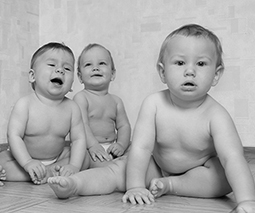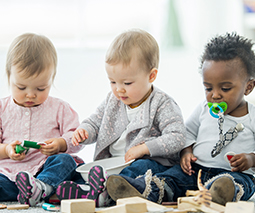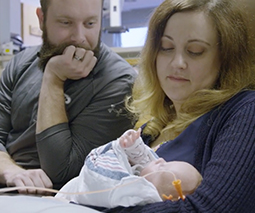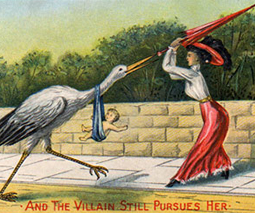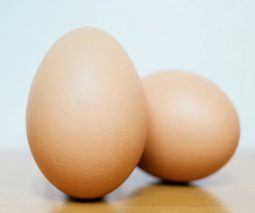“I finally got my miracle baby”: The heartbreak of early menopause
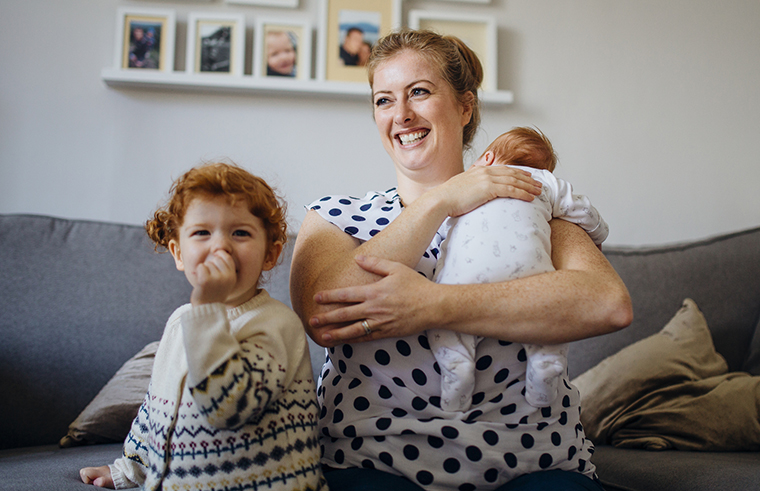
Initially, Jenny had no problem falling pregnant. She had her first baby at aged 32 and the second at 34.
“Both pregnancies were easy with no problems at all,” she says. Two years later, when Jenny and her husband decided to have a third child, they didn’t foresee any issues, and Jenny’s period was soon overdue. But this time, she didn’t feel like she was pregnant. “With my first two babies, I knew I was pregnant before I even took a test,” she says. “This time, I just knew I wasn’t pregnant.” When Jenny took a test, her suspicions were confirmed.
Family history
It was then that Jenny recalled a conversation she’d had with her mother when she was very young: “My mother told me that she thought she was going through menopause at 36, but in fact, she was pregnant with me.”
Jenny, the youngest of four children, with six years between her and her brother, didn’t give much thought to her mother’s comment at the time. Until many years later when she herself was 36 and trying to conceive. “I just wondered if maybe that was what was happening to me,” she says.
Then around this time, Jenny learnt that her sister, ten years her senior, had also gone through early menopause.
Getting help
At this point, Jenny was only having about six periods a year and experiencing perimenopausal symptoms such as forgetfulness, hot flushes and weight gain. She was still keen to have a baby and went to talk to her GP. However, the doctor was dismissive in her attitude, saying that it was unlikely Jenny was going through early menopause at the age of 36. She offered to run some tests, more to put Jenny’s mind at ease, but soon discovered that she was indeed perimenopausal.
“I remember her saying to me that if I’d wanted to have a baby through IVF, I probably wouldn’t have been accepted,” says Jenny.
Feelings of isolation
According to the Mayo Clinic, five percent of women go through early menopause at 40-45 years, with one percent experiencing premature menopause before the age of 40. Being so young, Jenny found the experience extremely isolating.
“It was disheartening that when I looked online, a lot of the information was about older women with grey hair, going through empty nest syndrome,” she says. “I was 36 and wanted another baby. I couldn’t identify with any of the information available.”
Jenny did have one friend who was also going through early menopause, but she’d already had three children and wasn’t trying for any more. Eventually, through online forums, Jenny found women in similar situations but was frustrated with the lack of information that she could relate to.
Miracle baby
As Jenny was still having a few periods, her GP advised her to keep trying. Miraculously, she did fall pregnant easily but miscarried three times. The experience was emotionally draining, and Jenny and her husband set themselves a deadline. If they didn’t fall pregnant by a certain date, they’d let it go. The date came and went, and Jenny went through a time of mourning. But she also felt guilty since they did have two beautiful children, whereas many women have trouble conceiving at all. Still, with friends around her all having their third, it was hard to move on.
“I knew I shouldn’t complain,” she says. “But I also thought that my body isn’t doing what it’s supposed to be doing and I’m allowed to feel upset about that.”
Not long after, without even trying, Jenny was surprised to discover that she was indeed pregnant and happily, all went well. “I finally got my miracle baby at the age of 39,” she says.
Now Jenny is well and truly out the other end of menopause, and while others her age haven’t even started, she just feels lucky to have had her third beautiful baby before it finally happened.
